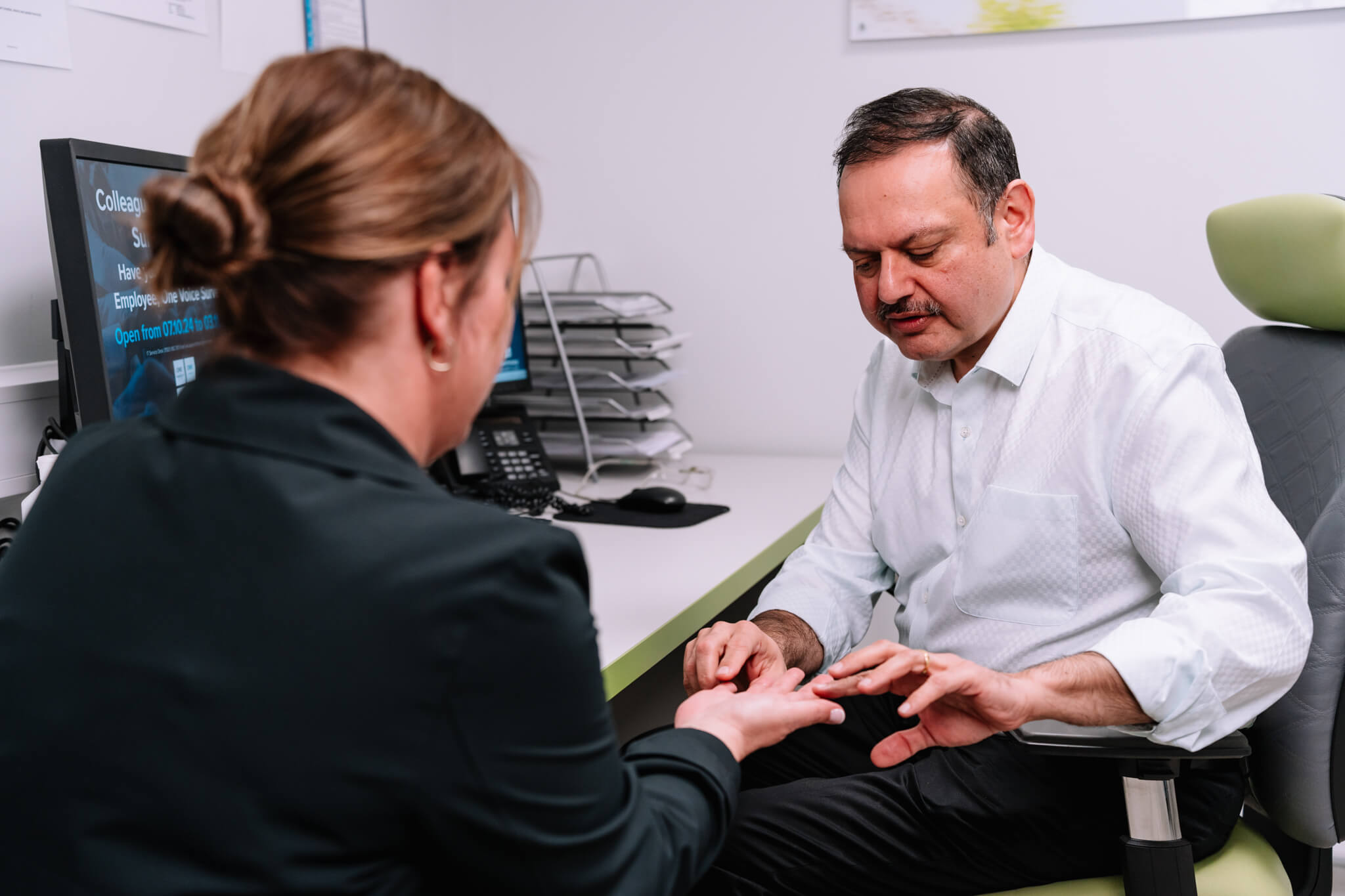What is a retina disease?
A retina disease affects the thin tissue lining the back of your eye that is responsible for your vision. It causes eyesight symptoms such as seeing flashes and floaters, blurred or distorted vision, side vision defects or vision loss.
Common retinal diseases and disorders include:
• Age-related macular degeneration (AMD) – when the centre of your retina, called the macular, begins to deteriorate and causes blurred central vision. There are two types of macular degeneration: wet macular degeneration and dry macular degeneration.
• Retinal tear – when the clear, gel-like substance in the centre of your eye (vitreous) shrinks, it pulls and tears your retina. Symptoms of this diabetic eye diseases often include floaters and flashing lights.
• Diabetic retinopathy – diabetes can damage the tiny blood vessels inside your retina and may blur or distort vision. It is extremely important for diabetic patients to maintain the eye test schedule advised by their eye specialist, which will depend on the severity of the disease. Early detection and treatment can help prevent vision loss.
• Retinal detachment – occurs when a retinal tear allows fluid to flow under your retina causing the retina to lift away from the underlying tissue layers.
• Macular hole – development of a small defect in the macular due to abnormal traction between the retina and the vitreous, or an injury to your eye.
• Retinal vein occlusion – is a blockage in the vein of your eye that can cause swelling and haemorrhages (bleeding) and, can damage the cells of your retina and can affect your sight. Anti-VEGF injections and steroid injections are used to treat this condition.
Often patients with dry eyes also have unexplained, fluctuating and decreased vision and their consultant ophthalmologist will determine the reason for this change in vision.


